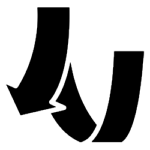Why Precision Searching?

Precise searches turn up more appropriate sources.
Effective searching takes precision. This section shows you how to perform several steps to make your search more precise—you’ll turn up more sources that are useful to you and sources that may be crucial to your research question. You’ve probably been searching more casually for years and may wonder: Is going to the trouble of precision searching actually worth it?
Yes, definitely, for searches that are important to you! You compete with many people who are working to be as skilled as they can be. So you should make use of these steps for course assignments and information tasks you do on the job. With other tasks and searches, precision searching may be less important.
Search Strategy
This information on precision searching is based on how search tools such as subject and specialized databases operate. If you’ve been more casual in your searching practices (especially Googling), some of these steps may be new to you. Starting with a research question helps you figure out precisely what you’re looking for. Next, you’ll need the most effective set of search terms – starting with main concepts and then identifying and using related, broader, and narrower terms. Your search terms need to be arranged as effective search statements, which you then type into a search box.

An important thing to remember is that searching is an iterative process: we try search statements, take a look at what we find and, if the results weren’t good enough, edit our search statements and search again—often multiple times. Most of the time, the first statements we try are not the best, even though we get some results. It pays to search further for the sources that will help you the most. Be picky. Here are the steps for an effective search.

